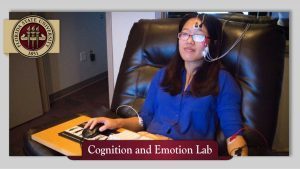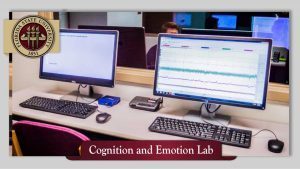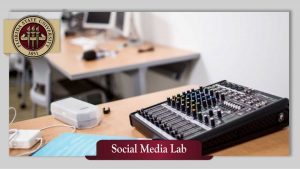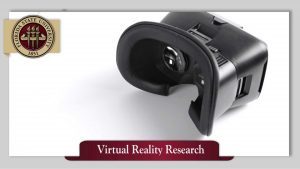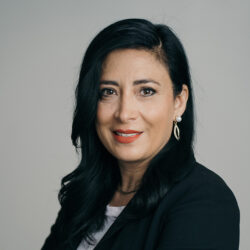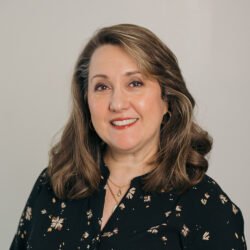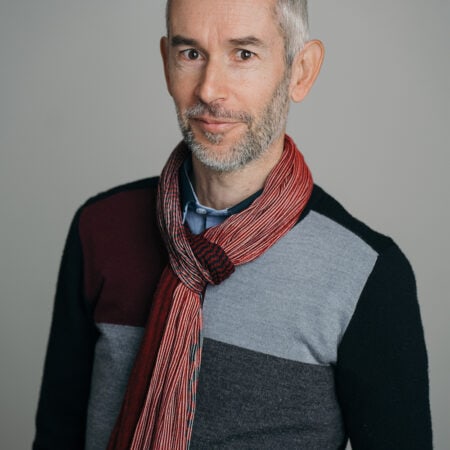Program Information
College: Communication & Information
Degree:
Limited Access: Yes
Contact: Arienne Ferchaud
Address:
School of Communication
Suite 3100, University Center C, FSU
P.O. Box 3062664
Tallahassee, FL USA 32306-2664
Phone: (850) 644-7278
Email: arienne.ferchaud@cci.fsu.edu
Pursue a Ph.D. in Communication at Florida State
The doctoral program is primarily designed for students who are interested in pursuing positions at research-based institutions within the communication discipline, especially academic positions at research universities. However, students may choose to use the degree to launch a career in research, consultancy, not-for-profit organizations, governmental affairs, or one of the various communication-related industries. Regardless of the student’s chosen career path, the primary objective for all will be to become an independent and original scholar. Beginning with a common set of foundational courses, students will encounter a range of philosophical, theoretical, and methodological approaches to communication scholarship. A major goal of the program is for students to gain knowledge of and an appreciation for the complexities and interdependencies within communication inquiry. To that end, students will gain a critical, historical, and theoretical grounding in the broad communication discipline and then will pursue more advanced study through doctoral-level seminars, directed independent studies, and supervised research experiences. The program emphasis is communication theory and research.
Related News
School of Communication Professors and PhD Student Research Graduate Readiness in Public Relations
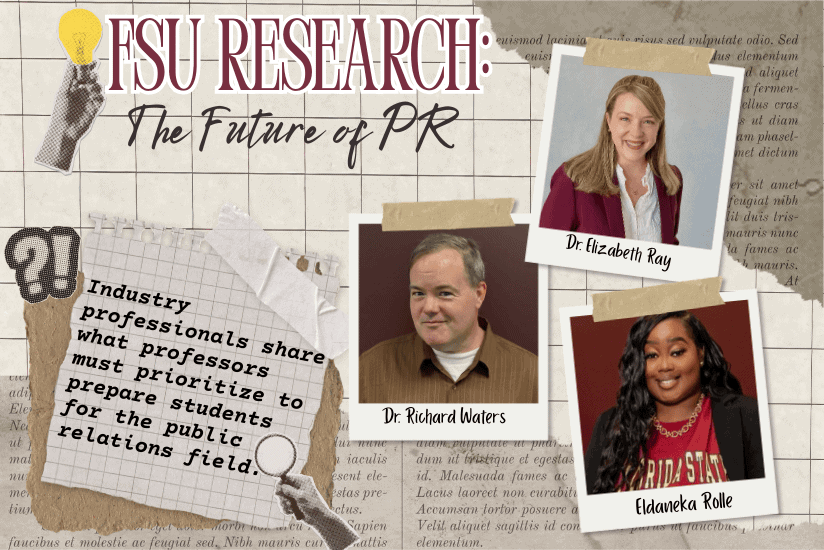
READ MORE
SCOM Assistant Professor’s Research Featured in Journal of Eating Disorders
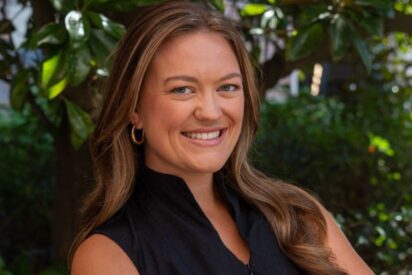
READ MORE
SCOM Doctoral Candidate Presents Research at Lake Como Summer School Conference
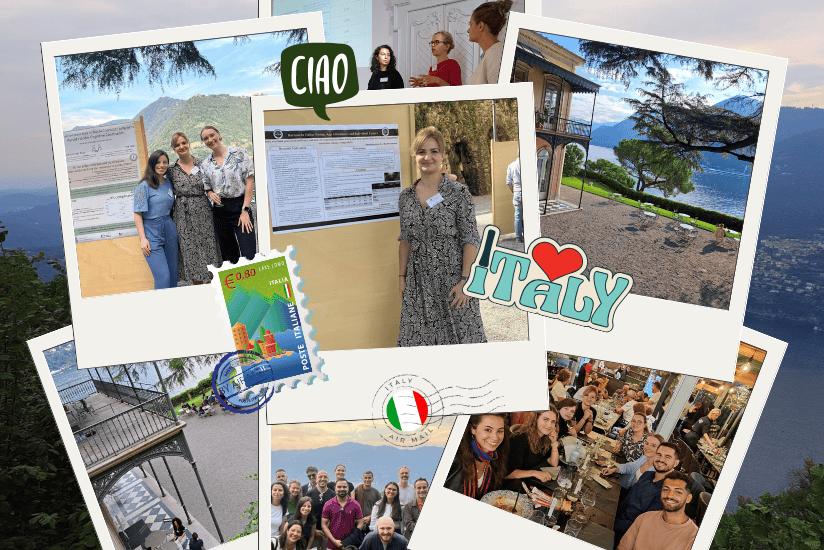
READ MORE
Program's Overview
Pursue a Ph.D. in Communication at Florida State
The award-winning faculty members in the School of Communication are ready to help you build a career in communication research, teaching, and related fields. At Florida State, you can work with a dynamic and diverse faculty and peer group. Our faculty and students specialize in areas such as emerging communication technologies, health and environmental communication, social media, social movements, political communication, media psychology, and marketing communication. Our program offers you extensive training in instruction and research, as well as access to an impressive array of resources, tools, and facilities that can help you achieve your educational and professional goals.
Program Emphasis: Communication Theory and Research
Beginning with a common core of courses, students will encounter various philosophical, theoretical, and methodological approaches to communication scholarship, from interpretive analyses to empirical studies. A major goal of the program is for students to gain knowledge of and an appreciation for the complexities and interdependencies within the range of communication inquiry. To that end, students will gain a critical, historical, and theoretical grounding in the communication discipline that will prepare them to pursue more in-depth coursework in media studies, cultural and rhetorical studies, or marketing communication. Students will be actively mentored so that they can present the results of their coursework and scholarship at national and international conferences, culminating in publication in refereed scholarly outlets. Want to learn more? See examples of current student research here. See faculty research areas here
Funded Research and Teaching Experiences + Tools
Students who are admitted to the program with funding (the overwhelming majority of students) are immediately provided funded assistantships in both teaching and research so that they can more easily build a record of scholarship and independent instruction that will prepare them for post-graduate careers. Students also have access to a variety of research facilities and tools, including:
- The Social Media Lab, with tools for social media content production as well as for data collection, visualization, and analysis
- Two experimental Media Psychology Labs, including MediaLab and Direct RT software
- Cognition and Emotion Lab, including psychophysiological measures as indices of cognition, emotion, and motivation (http://cel.cci.fsu.edu/)
- The Interactions in Communication Contexts (ICC) Lab, including psychophysiological, eyetracking, and behavioral coding metrics
- PEAKS Lab (Participatory, Experientially-based Applied Knowledge for Social change) is focused on developing – through action research – evidence-based interventions for complex social issues.
- Stereoscopic 3D Video and Virtual Reality production and editing facilities
- Focus Group and Presentation Center
- Free and remote access to Qualtrics survey software, SPSS, and NVivo
Funding for travel to present scholarly work at conferences and media festivals is also available to all students. Extensive training in instruction and classroom management is provided both through the School and through the Florida State University Program for Excellence in Teaching. Regular workshops on innovations in online courses/distance learning are also available to students.
Career Opportunities
As a research-oriented institution, Florida State University is committed to preparing the next generation of communication scholars. Therefore, we place an emphasis on preparing doctoral students to conduct significant, original research in their areas of expertise and to teach communication in a university or college setting. Depending on individual career goals, however, graduates of our doctoral program should also be qualified to hold management positions in a communication or research organization, as well as to consult in media, research, or marketing. Regardless of the student’s chosen career path, the primary objective for all is to become an independent and competent scholar.
Flexible Program Structure
Students in our Ph.D. program in communication theory and research complete or participate in a highly flexible program tailored to meet students’ needs and interests, including:
- 48 credit hours of graduate coursework after the Master’s degree, including a minimum of 12 hours in an outside cognate area;
- supervised teaching experiences, usually including an opportunity to teach undergraduate communication courses;
- supervised research experiences, with individual professors or as a part of one of our many research teams;
- an ongoing graduate research colloquium and professional development series;
- preliminary examinations after coursework; and
- an original, independent, and significant dissertation project, requiring a minimum of 24 credit hours.
Please see the Ph.D. Courses page for more information.
Lifestyle Considerations
Tallahassee is the vibrant, yet affordable capitol of Florida. A wide variety of parks, recreation facilities, fine and performing arts venues, restaurants, and nightlife options are available. Our nearby Gulf Coast beaches are regularly named among the best in the United States, and the Florida State University campus was recently named one of the top 10 most beautiful in the U.S. by College Magazine.
Contact Information
To learn more, please contact Dr. Arienne Ferchaud, Assistant Professor and Director of Doctoral Studies via email at:
arienne.ferchaud@cci.fsu.edu Ph.D. Program in Communication Suite 3100 University Center Building C School of Communication, FSU Tallahassee, FL 32306-2664 850-644-5034 (phone) 850-644-8642 (fax)Request Information
Program's Courses
Overview
Completion of the Ph.D. program in communication at The Florida State University requires 72-78 graduate credit hours. This includes at least 48 coursework hours beyond the completion of the Master’s degree, plus 24 hours for the dissertation. Depending on the student’s background and nature of the dissertation, the doctoral program typically requires two to three years to complete the coursework and preliminary examinations, and one year of dissertation work. With the advice and approval of the doctoral supervisory committee, each student will develop a program of studies. Specific doctoral program course requirements are minimized to provide the student maximum flexibility in designing a program of study to meet individual interests and goals. The doctoral coursework will consist of a minimum of 48 course credit hours beyond the completion of the Master’s degree, plus 24 hours of dissertation credits. The program is made up of the following components:
| Component | Credit Hours |
| Foundation Courses | 12 |
| Primary Area of Study | 9-12 |
| Secondary Area of Study | 6 |
| Research Methods and Design | 9-12 |
| Cognate | 12 |
| Preliminary Examination | 0 |
| Dissertation | 24 |
| Total | 72-78 |
Foundation Courses
To be introduced to a wide range of theoretical and methodological approaches to communication research, all students take the following 9 credits hours of course work (typically) during the first year of doctoral studies. COM5401 Analysis of Communication Theory, 3 hours, Required COM5312 Quantitative Research Methods in Communication, 3 hours, Required COM 5408 Philosophy of Inquiry and Pedagogy, 3 hours, Required COM5348 Qualitative Methods in Communication Research, 3 hours, Required COM5920 Colloquium in Communication, 0 hours, Required each semester prior to candidacy
Primary and Secondary Areas of Study
The School of Communication offers a variety of graduate courses in the areas of media studies, cultural and rhetorical studies, and marketing communication. Doctoral students will designate one of these as a primary area of study, completing 12-15 hours of coursework from an approved list. Students will also designate one of the remaining two areas as a secondary area of study, completing 6 hours of coursework from an approved list. All approved courses will include a “significant writing or creative assignment.” Also, to gain a deeper understanding of a topic, doctoral students are required to study beyond an introductory graduate level. To accomplish this task, the typical doctoral student will enroll in a minimum of 6 hours of individualized study as a part of the primary area of study. Please see Graduate Bulletin for specific course descriptions.
Research Methods and Design
One of the goals of our program is to develop not only consumers of communication scholarship, but also creators. To that end, students will become proficient in the communication research methods most appropriate to their intellectual interests. In general, students select from a list of courses, in addition to special topics courses that may focus on research methods. The student’s supervisory committee will help guide the selection of appropriate courses. The Department of Communication has recently offered methods-related classes dealing with the assessment of organizational communication, survey research, media content analyses, and criticism of contemporary public address, to name a few. Please see Graduate Bulletin for specific course descriptions.
Cognate
Students are required to pursue a cognate or minor area that relates to or enhances the overall program of studies. This requirement is fulfilled with courses offered outside the School of Communication. Additionally, although it is not required that all twelve credit hours be taken in the same outside department, it is generally understood that all twelve hours of coursework should be conceptually related to one another. The supervisory committee will be the student’s guide for selecting the most appropriate cognate courses.
Preliminary Examination
At the end of a student’s coursework and upon the approval of the doctoral supervisory committee, students will complete the Doctoral Preliminary Examination. The purpose of the preliminary examination is to determine if the student is sufficiently prepared to continue with the original, independent scholarly work required to complete a doctoral dissertation. Upon successful completion of the preliminary examination, the student officially becomes a doctoral candidate.
Dissertation
Upon admission to candidacy, the student is ready to begin the dissertation process. Students should note that dissertations should represent original, independent scholarship that is of significance to the discipline. Work will be held to the highest standards. The minimum number of dissertation credits for completion of a doctoral degree is twenty-four. With the major professor’s approval, the student must enroll in Dissertation Defense for the semester in which the dissertation project will be completed. With successful defense of the dissertation, the student has fulfilled the departmental requirements for the degree.
Transfer Credit/Course Equivalencies
Technically speaking, the School of Communication does not accept “transfer credit.” That is, because students are required to take at least 48 hours of course credit after the Master’s degree, “transferring” credit is simply not necessary. However, this does not mean that students are denied all credit for previous graduate courses taken. Previous graduate coursework is routinely approved as course equivalencies for one or more of the three required Foundation courses. The director of doctoral studies and the school director can give students advice on what previous courses might serve as Foundation course equivalencies. However, the decision to actually apply to the program of studies certain courses ultimately rests with the doctoral supervisory committee. For courses to be considered as possible equivalents, students must supply a copy of the course syllabi for evaluation. Discussions about possible course equivalencies should take place early in a student’s program.
Admissions
Application Deadlines
Doctoral program — December 15
International applicants have earlier deadlines and additional application requirements. To ensure completion of your immigration papers and timely review of your application, we recommend that you submit your application early to allow time for processing of international documents, including visas. Please see the section below titled “Additional requirements for international students” for a list of other requirements
Application Requirements
All applicants for master’s and doctoral programs in FSU’s School of Communication must satisfy university requirements as well as departmental requirements.
Florida State University Graduate Admission Requirements
- Complete and submit the University Admissions Office’s Online Application Form.
- Pay a non-refundable application fee of $30. Application packets will not be reviewed until the fee has been paid.
- Submit a completed Residency Affidavit. All applicants must submit this form, which is completed online.
- Arrange for two copies of official transcripts to be sent from each college or university attended. These must come from the schools; student copies of unofficial transcripts are not acceptable.
- The Graduate Record Examination (GRE) is not required.
School of Communication Graduate Admission Requirements
In addition to the university requirements listed above, all Communication graduate program applicants must meet the School of Communication requirements listed below. You do not need to submit a separate School application; your university application specifies a program within the School of Communication to which you are applying. Admission is competitive; meeting the following requirements does not guarantee admission, only consideration.
- An excellent undergraduate academic record, from accredited universities, to include a minimum 3.0 GPA (on a 4.0 scale). In addition, doctoral applicants should have a minimum of a 3.3 in their master’s degree work.
- Three letters of recommendation.
- A personal statement to be evaluated for its clarity of expression, creativity and persuasiveness in arguing that (1) the applicant has the necessary record of preparation and performance to succeed in the program; (2) the applicant’s goals can be served by the program’s courses and experiences; (3) the program itself can benefit significantly from the applicant’s talent and experiences; and (4) the applicant will enrich the diversity of students in his or her program. In making these arguments, please address the following questions specifically:
- What are your career goals; that is, what do you plan to be doing in five years and in 10 years?
- Why have you chosen to apply to our master’s or doctoral program?
- What experiences and competencies make you a strong candidate for our program (research skills, computer literacy, teaching experience, awards, etc.)?
- What faculty have you identified that you could potentially work with, and why?
- A resume or writing sample (optional for master’s students; required for doctoral students).
These documents are to be submitted with your online university application. Instructions for submitting supporting documents. (pdf 31.38 kB)
Additional requirements for international students:
- Provide proof of proficiency in both spoken and written English language: An international applicant whose native language is not English, or who has not completed a degree at an English-language university, must have taken the TOEFL (Test of English as a Foreign Language) exam (or FSU Graduate School approved alternative test) within the past five years. The Educational Testing Service administers this test. For more information: ets.org/toefl. The English Language Proficiency requirement can be waived, at the University-level, for applicants who have earned a minimum of a BA or higher in the US or in an English-Speaking Country. Please note, your department may still require proof of English-Language proficiency. *A variety of countries are exempt from the English language proficiency requirement.[AF3]
- Provide Certification of Financial Responsibility. This required form may be downloaded online or requested from the university. NOTE: The completed CFR is submitted to the International Center. Instructions and address are on the form.
- International applicants or degrees earned from international institutions must submit their official transcripts through the SpanTran pathway portal, or from another NACES approved evaluator. SpanTran has created a custom application for Florida State University that will make sure you select the right kind of evaluation at a discounted rate. Florida State University recommends SpanTran as our preferred credential evaluation because it offers an easy way to streamline the application process.
Need more information?
Questions about School Admission Requirements:
Natashia Hinson-Turner, Graduate Coordinator School of Communication
ComGradAdvising@cci.fsu.edu
850-644-5034
Suite 3100, University Center C, FSU
P.O. Box 3062664
Tallahassee, FL USA 32306-2664
Questions about University Admissions Requirements:
Office of Admissions
The Florida State University
P.O. Box 3062400
Tallahassee, FL USA 32306-2400
admissions.fsu.edu
graduateadmissions@admin.fsu.edu
850-644-6200
Questions about Communication Graduate Programs:
Betsy Crawford, Graduate Recruiter
College of Communication & Information
Betsy.Crawford@cci.fsu.edu
850-645-9661
Program's Faculty
Bunz, Ulla
Associate Professor, Associate Dean for Student & Academic Affairs
Chapa, Sindy
Professor & Director of the Hispanic Marketing Center
Houck, Davis
Fannie Lou Hamer Professor of Rhetorical Studies
McDowell, Stephen D.
Assistant Provost
John H. Phipps Professor of Communication
Proffitt, Jennifer
Theodore Clevenger Professor in Communication
Wendorf Muhamad, Jessica
Associate Professor, Director PEAKS Research Laboratory
FAQ
Do I have to take the GRE and what are the required scores?
The GRE has been waived for School of Communication doctoral applicants.
Do you offer assistantships/funding?
Yes. All students who are admitted to the program (except those who have their own funding sources) receive tuition waivers and funding for serving as a graduate assistant in our program for 20 hours each week.
How long to complete the program?
The doctoral program often requires six or seven semesters of full-time coursework beyond the Master’s degree and at least one year of dissertation work. Students with a Master’s degree from a discipline other than communication should expect to spend more time completing the doctoral program. Doctoral students must complete requirements for the Ph.D. degree within 135 semester hours maximum, including dissertation.
Who should write my letters of recommendation?
As the doctoral program is intended to prepare students to conduct high-quality scholarly research, letters of recommendation will be most useful to the admissions committee if they are written by those who have had an opportunity to interact with the applicant in their scholarly and/or research endeavors.
I am not a Communication major do I need to take prerequisites?
Though a background in Communication is helpful, it is not required. No specific prerequisites.
When can I expect a funding decision?
Funding decisions are made concurrently with admission decisions.
What English language proficiency tests do you accept and what are the requires scores?
The School of Communication accepts the following tests and minimum scores.
|
TOEFL |
IELTS |
Cambridge English Scale |
Michigan Assessment Level |
Duolingo |
|
100 |
7 |
190 |
72 |
120 |
How much does it cost?
For up-to-date costs, please see the FSU Tuition & Fees page, https://studentbusiness.fsu.edu/tuition-fees
Can I have the application fee waived?
No, the application fee of $30 cannot be waived.
Research Labs
The School of Communication hosts a number of labs that contribute to the development of new knowledge, spread of innovation, and implementation of practices well-suited to the diverse Florida communities, the nation, and the world.
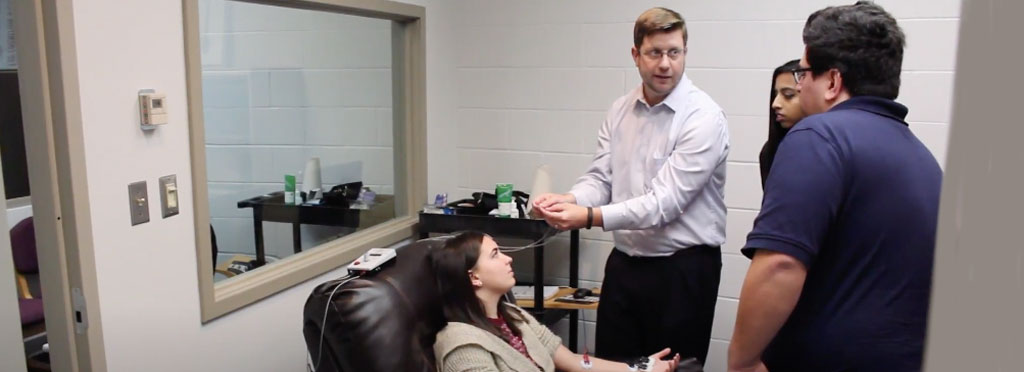
COGNITION AND EMOTION LAB
Cognition and Emotion Lab
The Cognition and Emotion Lab includes research and teaching laboratories devoted to investigating how biologically, psychologically, and sociologically relevant factors interact to affect how individuals cognitively and emotionally process and respond to different types of information in various contexts.
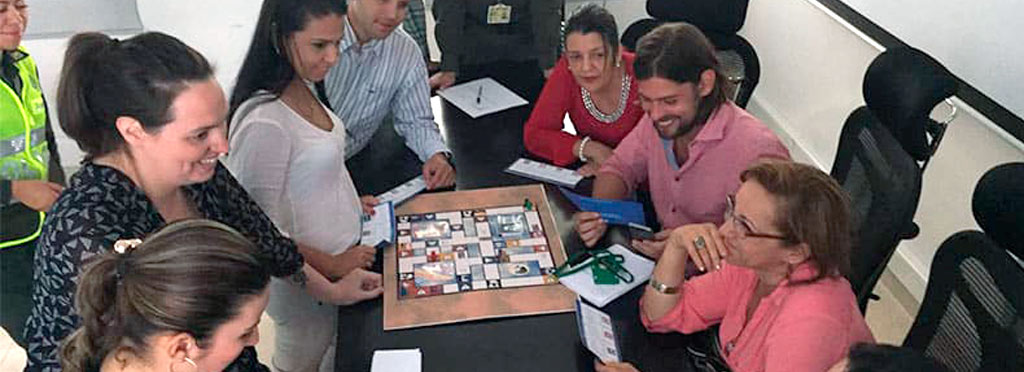
PEAKS LAB
Peaks Lab
PEAKS laboratory (Participatory, Experientially-based Applied Knowledge for Social Change) is focused on developing – through action research – evidence-based interventions for complex social issues.
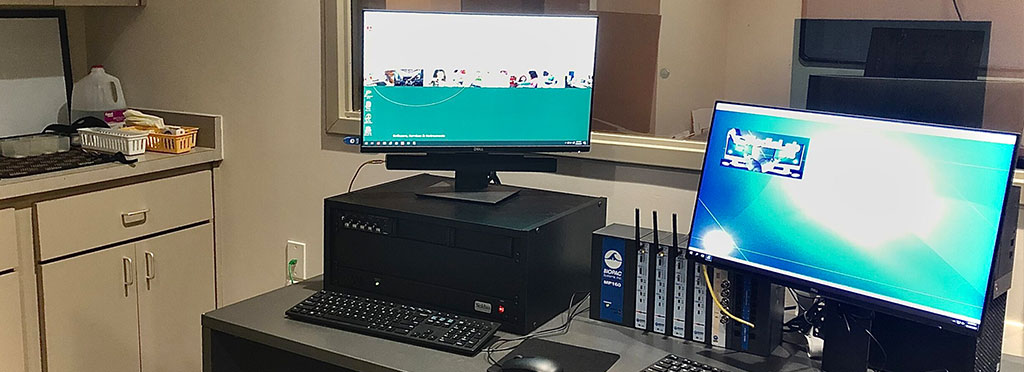
ICC LAB
ICC Lab
The ICC Lab investigates how and why people interact with and make decisions in a variety of contexts, often mediated contexts. We are particularly interested in ways messages and media are designed to further particular types of communication goals and outcomes.

